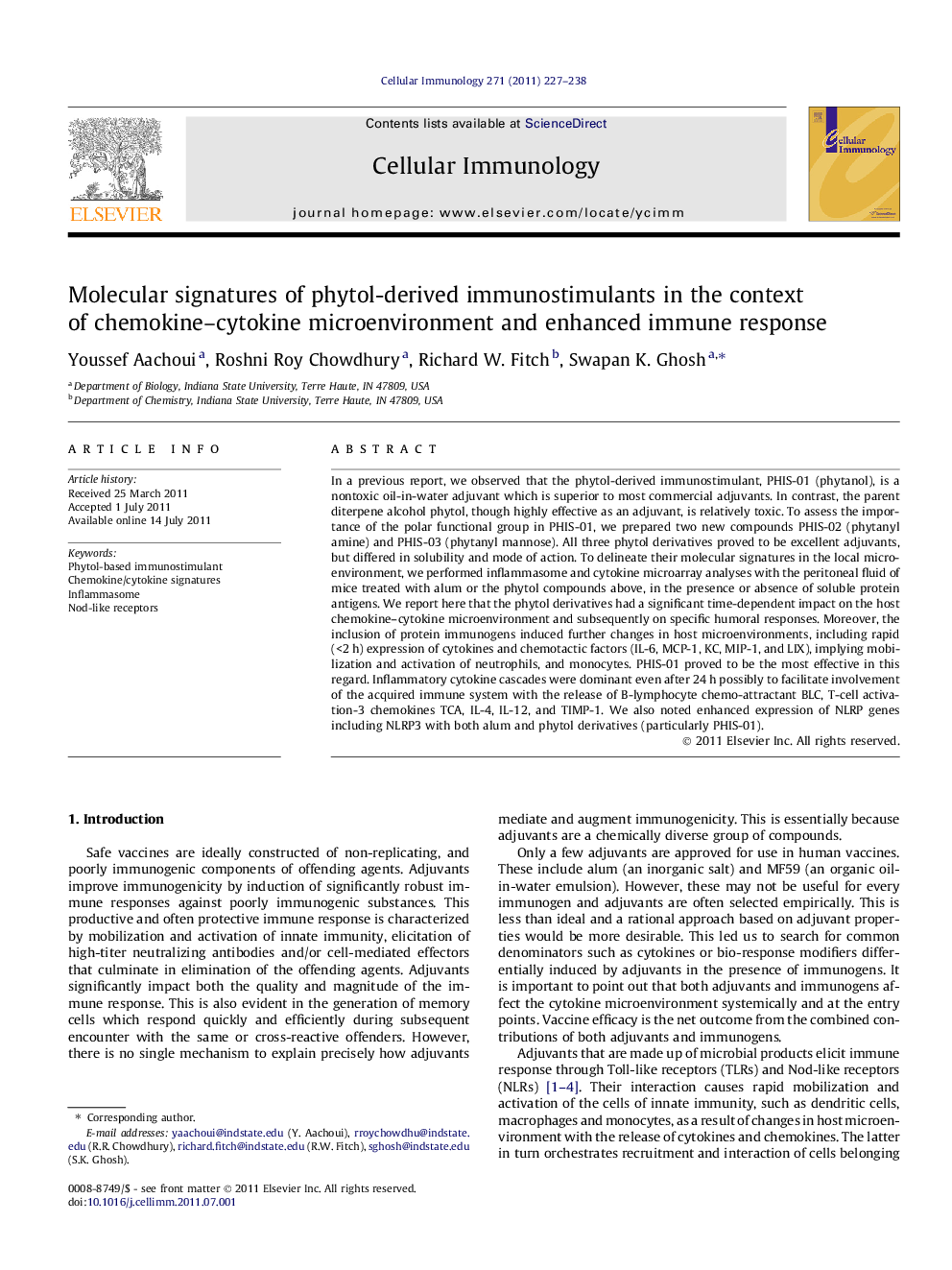| کد مقاله | کد نشریه | سال انتشار | مقاله انگلیسی | نسخه تمام متن |
|---|---|---|---|---|
| 2167277 | 1092323 | 2011 | 12 صفحه PDF | دانلود رایگان |

In a previous report, we observed that the phytol-derived immunostimulant, PHIS-01 (phytanol), is a nontoxic oil-in-water adjuvant which is superior to most commercial adjuvants. In contrast, the parent diterpene alcohol phytol, though highly effective as an adjuvant, is relatively toxic. To assess the importance of the polar functional group in PHIS-01, we prepared two new compounds PHIS-02 (phytanyl amine) and PHIS-03 (phytanyl mannose). All three phytol derivatives proved to be excellent adjuvants, but differed in solubility and mode of action. To delineate their molecular signatures in the local microenvironment, we performed inflammasome and cytokine microarray analyses with the peritoneal fluid of mice treated with alum or the phytol compounds above, in the presence or absence of soluble protein antigens. We report here that the phytol derivatives had a significant time-dependent impact on the host chemokine–cytokine microenvironment and subsequently on specific humoral responses. Moreover, the inclusion of protein immunogens induced further changes in host microenvironments, including rapid (<2 h) expression of cytokines and chemotactic factors (IL-6, MCP-1, KC, MIP-1, and LIX), implying mobilization and activation of neutrophils, and monocytes. PHIS-01 proved to be the most effective in this regard. Inflammatory cytokine cascades were dominant even after 24 h possibly to facilitate involvement of the acquired immune system with the release of B-lymphocyte chemo-attractant BLC, T-cell activation-3 chemokines TCA, IL-4, IL-12, and TIMP-1. We also noted enhanced expression of NLRP genes including NLRP3 with both alum and phytol derivatives (particularly PHIS-01).
► The polar functional groups in phytol derivatives (PHIS-01, PHIS-02, and PHIS-03) influence the local chemokine and cytokine microenvironment.
► All three phytol derivatives proved to be excellent adjuvants in activation of innate immunity.
► Like alum, phytol-based immunostimulants boost expression of NLRP gene family, particularly NLRP3 and other inflammasome complexes.
► Adjuvant induced cytokine profile is modified by the intrinsic nature of antigens.
► Overall PHIS-01 seems to be the most potent inducer of cytokines and chemokines.
Journal: Cellular Immunology - Volume 271, Issue 2, 2011, Pages 227–238